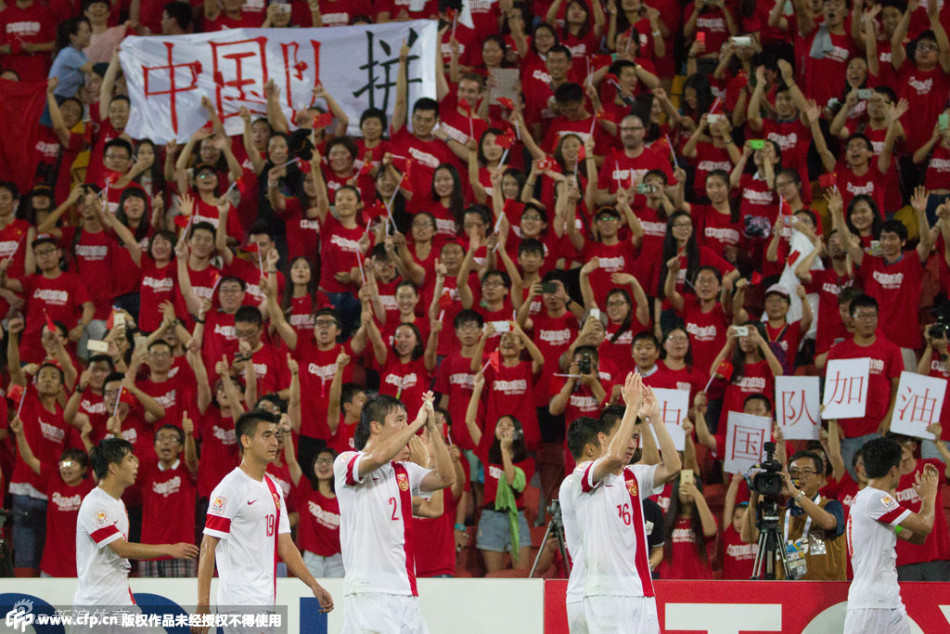China’s Asian Cup turned out better than anyone expected with positive outcomes all round – even the timing of their exit.
The national team gave an extremely respectable showing, playing some of its best football for years, winning all three group games – something they had never done before – and qualifying for the knock-out stage for the first since since 2004.
The Guozu at times played to a standard which seemed unimaginable just weeks before the tournament, leading to rave reviews, an upsurge of interest in the national team at home, and the foreign media asking if China had turned the corner.
Had they? We can’t really say that yet. It shouldn’t be forgotten that China’s group was arguably the weakest of the tournament. However, in the past China’s rare runs of good results have come in friendlies. This time we saw the national XI bossing the Uzbeks and Saudis on the highest stage available outside the World Cup.
The Asian Cup might be a footnote on western websites such as the BBC’s football homepage, who prefer to focus on the African Cup instead with its EPL connections. But in Asia it’s a bigger deal, and make no mistake, China would have gone absolutely nuts if they had won it. It’s taken seriously in China which underlines the significance of the team’s achievement in delivering such quality results and performances.
China’s exit when it came was an unsurprising disappointment. However, it was the best result for all concerned. Losing to the hosts was the most acceptable way to leave the tournament. Had China somehow found a way past Australia, it would have masked the massive amount of work that still has to be done at grassroots level, in the governance of the sport, the commercial development of the league, the building of a strong football culture, and the progress that still needs to be made in the professionalism of CSL clubs.
As it turned out, China returned home from Australia with their heads held high having exeeded expectations by quite some margin, and, most importantly, the team regained respect both at home and abroad, bringing vital confidence.
China can look back on a tournament where it brought nothing but positives to the party. Stadiums were filled with colourful and passionate fans. Exciting football was played. The team’s flambouyant translator became a media star. And China even produced the tournament’s best good news story so far in the shape of the local ballboy telling Wang Dalei which way to dive for his penalty save against Saudi Arabia.
All told China’s Asian Cup 2015 went better than anyone dared hope and exiting when they did was a reminder of the work that still lies ahead.
Alain Perrin has instilled confidence and belief back in the team and probably has the job now for as long as anyone can see ahead.
For further progress, the Chinese football system needs to let the likes of Zhang Linpeng, Wu Lei and Wang Dalei to hone their skills in Europe, and set about creating a deeper and more diverse talent pool for Perrin to work with.
Much work remains to be done, but China did a great job in Australia.
